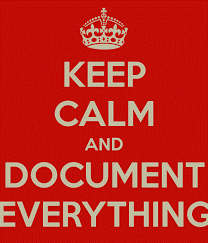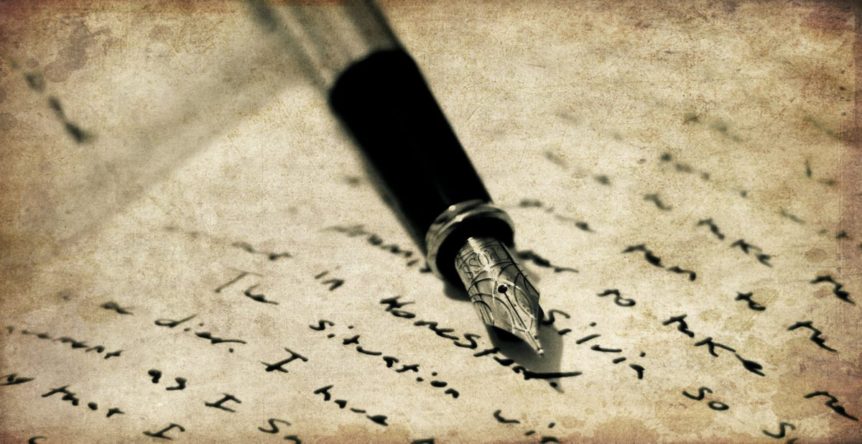 Today, I’m writing from sunny San Diego at the annual Nonprofit Storytelling Conference. Richard and I are here to talk about the importance of storytelling in major gift success. There are over 500 people here, all talking about two things: 1) The donor’s story, and 2) the story of the need that non-profits are addressing.
Today, I’m writing from sunny San Diego at the annual Nonprofit Storytelling Conference. Richard and I are here to talk about the importance of storytelling in major gift success. There are over 500 people here, all talking about two things: 1) The donor’s story, and 2) the story of the need that non-profits are addressing.
But they are forgetting another equally important story: the story of the relationship of your donor to your organization. What’s that story?
You might be thinking, “What the heck are you talking about?” Simply stated, it’s this: Are you documenting the work you and your organization are doing with your donor? If an outside person looked in your database and randomly chose a person on your portfolio, would they know how you have built that relationship over time? Would they know exactly where you were taking that donor?
Richard and I believe that this is a massive problem in our industry. We are not documenting the work we are doing with our donors, and therefore when a major gift fundraiser leaves an organization, that organization has to retell their story and get to know the donor’s story all over again. It’s a huge waste of time and energy, and it dishonors the donor.
Victor Korelstein, a good friend of the Passionate Giving Community who heads the national major giving team at Boy Scouts of America, wrote me recently and poignantly said this:
“Documentation is key to keeping the momentum going with donors, but also to ensuring that the work can continue if the “what if I get hit by a bus” scenario occurs and/or there is a change in the staff member assigned to the donor relationship.
I am reminded of an experience I had several years ago at a steak house in the Carolinas. I entered the restaurant without a reservation and gave my name to the worker at the desk at the front of the restaurant. A few minutes later, someone came to walk me to my table and asked me if I was from out of town and here on business. I shared this information. Once I was seated at my table, the next restaurant employee came to my table to pour water and greeted me by name, acknowledging that I was from out of town and here on business.
The conversation continued… and continued… and continued. It seemed like every worker who came to take care of me continued the story. By the end of the evening I was having a conversation with a regional representative of the restaurant, and we have continued to communicate ever since. In fact, she can see whenever and wherever I use one of the restaurants in their chain, and she asks me how the experience was.
I have no idea if they were writing notes on a napkin, if they had a white board or were using an electronic system. It does not matter. The important thing is that they were communicating this with others, and it made me feel really special. So special, in fact, I came back to my work and shared the experience with others. This type of concierge experience impressed me greatly. I thought, if a restaurant goes to this length to create a good customer experience, why can’t we as major gift professionals with sophisticated software and resources at our disposal, do the same with our donors and potential donors?
Think also about a person who is in the hospital or under the care of a doctor. What would happen if notes were not kept on the care of the patient or their treatment? I am not even going to discuss the lawsuits that would occur. It is all about the continuity of care.
I believe it comes down to dedication to documentation and understanding the role of the donor management process. I also believe donor documentation is not just an administrative function; it is part of the donor relationship.
I have come to believe in documenting everything that occurs between a donor and myself where there is activity or a “call-to-action.” This includes information from simple emails to phone calls to personal face-to-face meetings. Any information that can help me or others down the road, or more importantly help my successors when the time comes, can only be beneficial. Even if it is determined that the donor is not a qualified major gift donor, I will document the information because maybe one day they will be a major gift donor, and the conversation will be of benefit to someone.
I hear from major gift professionals that they don’t have the time to document every interaction. I cannot express how important donor documentation is today and for the future.
Too often, a new professional joins an organization and may be handed the name of a donor they are expected to work with.
What do they do? Where do they start?
Without documentation, they are most likely starting at the beginning. At what point does the donor say “This is ridiculous! I have had enough. I am tired or repeating the same story repeatedly for every new employee who comes to visit me.”
For the sake of the donor and the potential donor, we need to be more diligent in our efforts, more dedicated to the process and more devoted to telling the donor story through complete and thorough documentation.”
Victor nails it! Remember, these good donors have a life with your organization after you leave. One of the greatest things you can leave behind to your successor is a clear understanding of your donor’s story and the relationship you have built through the years of interaction you have had with that donor.
Don’t forget this story.
Jeff





Great post, Jeff. And I’ll be sharing this far and wide. It’s interesting that I read it just minutes after I cancelled two monthly donations to two different organizations. And they were both because the people (not major gift officers) who had originally brought me into the organization had left and I haven’t had a word since.
Hear, hear! Having been on both ends of this equation, it’s frustrating as a gift officer and painful as a donor. I’ve had my heart broken more than once!
Jeff,
Just read your post,you are spot on.I think many folks are looking at the now and not looking at the long engagement viewpoint.In todays world, I see the need for instant results but as you know major gift development is the long engagement that can lead to Mega Gifts and having those notes to go back to for myself and those that follow are so important.I now work for a Children’s NPO that is turning 146 years old,as we have been laying the ground work for the future and it is more important than ever and we have fundraising software that makes it so easy to make those notes that help in the developmental process of dealing with our donors now and into the future
.Recommendation more fundraisers need to take a few courses in history and they might appreciate this process of the “long game” all the more.
Gary Bukowski Sarah A Reed Children’s Center